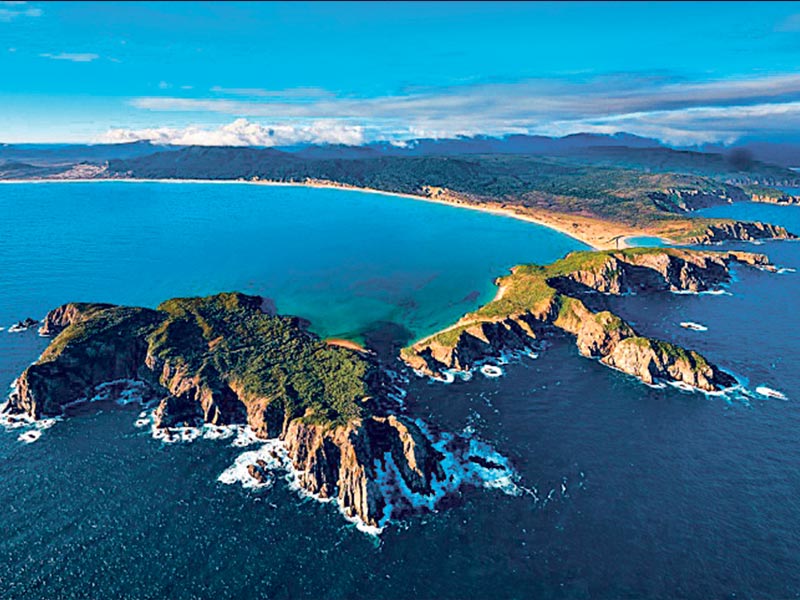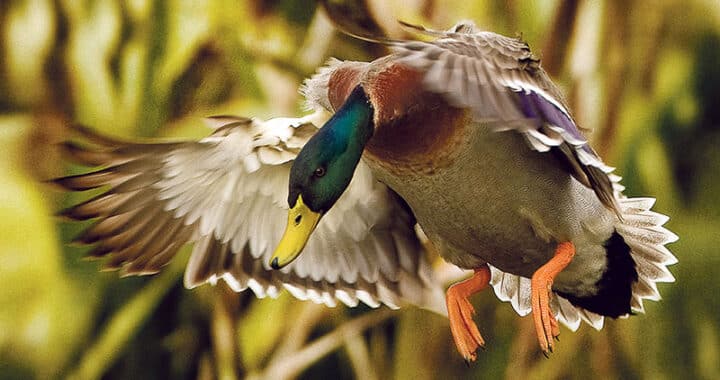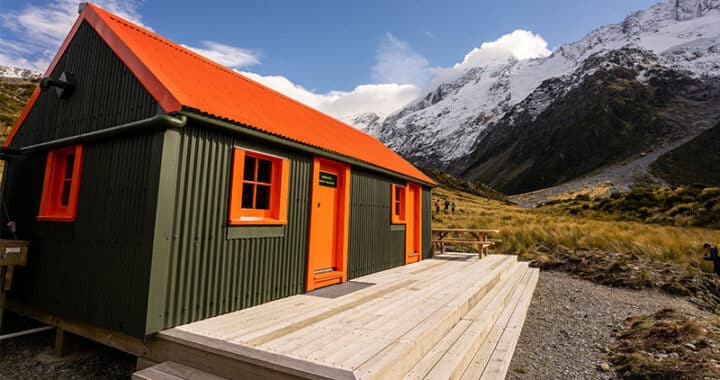World-first Predator Eradication Project
4 min read
Rakiura/Stewart Island, looking NE across Mason Bay. Photo: Te Runanga o Ngai Tahu
Representatives from Manaaki Whenua – Landcare Research and Predator Free Rakiura signed a research partnership agreement worth a joint $2.8 million over four years to work together towards ridding Rakiura/Stewart Island of all major predators – possums, rats, feral cats, and hedgehogs.
The project will be the biggest island predator eradication attempted globally and will also be a world-first predator-free project on an inhabited island.
At 180,000 hectares, Rakiura Stewart Island would be the largest island-based predator eradication attempt ever made, anywhere.
Over the next four years of the project, Manaaki Whenua – Landcare Research will provide $35k per year to undertake the fundamental underpinning science. This will be matched by Predator Free Rakiura.
The partnership will drive deep insights into achieving freedom from predators, a critical part of which is understanding the social aspects of resourcing, achieving, and maintaining freedom from predators from the perspective of the local community and iwi, the two groups said in a joint statement released.
“Manaaki Whenua is delighted to stand beside Te Puka Rakiura Trust in making Predator Free Rakiura a reality,” said Dr Fiona Carswell, acting CEO at Manaaki Whenua – Landcare Research.
“Real communities and projects are what bring our research to life. For us, there is also much to be learned through the co-development of the research with the Trust and the local community. We relish working with local knowledge and approaches to achieving biodiversity aspirations for Rakiura. Knowledge built by this ambitious project will surely have much to offer similar predator-free projects on the mainland in years to come.”
This ambitious work will be a major step towards the goal of a predator-free Aotearoa New Zealand.
“There is so much to learn to make Predator Free Rakiura a reality. This agreement for research enables a significant number of individual research projects each year, allowing us to explore predator behaviour, predator distribution and density, and the social and economic impacts of a project of this size and complexity. It will also help us understand the tools and techniques we may need to use, in multiple trials, to be successful,” said Campbell Leckie, Predator Free Rakiura project director
A global game changer

Welcoming the research agreement, Forest & Bird said ridding Rakiura Stewart Island of introduced predators will be a “global game changer”.
“Freeing Rakiura Island from introduced predators is a massively ambitious and important vision that will pave the way for environmental protection in the rest of New Zealand and the world,” said Forest & Bird spokesperson Dean Baigent-Mercer.
“Predator eradication on Rakiura Stewart Island will be a global showcase for what’s possible and how to get there. Making this happen will take a huge collaborative effort, and Forest & Bird acknowledge the expertise and dedication involved in this kaupapa.
“As well as being a game changer for native species such as the Stewart Island brown kiwi, hoiho, New Zealand dotterel, and many more native and endemic species, Predator Free Rakiura would be a major drawcard for nature tourism and the local economy and for the expression of mātauranga Māori.
“Including cats and hedgehogs within the research project is really important and will help create new pathways for controlling these invasive hunters.”
Rakiura was the home of the last population of kākāpō, which were transferred to safe offshore islands because cats were hunting down and killing the last of their species.
“The success of this project could see both kākāpō and South Island tīeke saddleback, which narrowly escaped extinction too, being returned to Rakiura,” Baigent-Mercer said.
“Currently, there are forested areas of Rakiura in active collapse, with tōtara being eaten to death by possums. Turning this situation around will be a milestone and help repair the native forest as a carbon sink.”
Future residents might see millions of seabirds flying into forests at sunset, loud bird song, and chatter of tui, bellbirds, kakariki by day, and the cries of kākāpō, kākā and seabirds by night, Forest & Bird said.
“Sixty years ago, Forest & Bird members led the very first humble rat eradication on Maria Island in the Hauraki Gulf, which covers only one hectare. It’s incredible that today New Zealand is researching the removal of all introduced predators off an island 180,000 times bigger.
“Like those who had the foresight to bring about Rakuira National Park and the legacy they left, so too will the people involved in Predator Free Rakuira leave a great legacy for current and future generations.”



